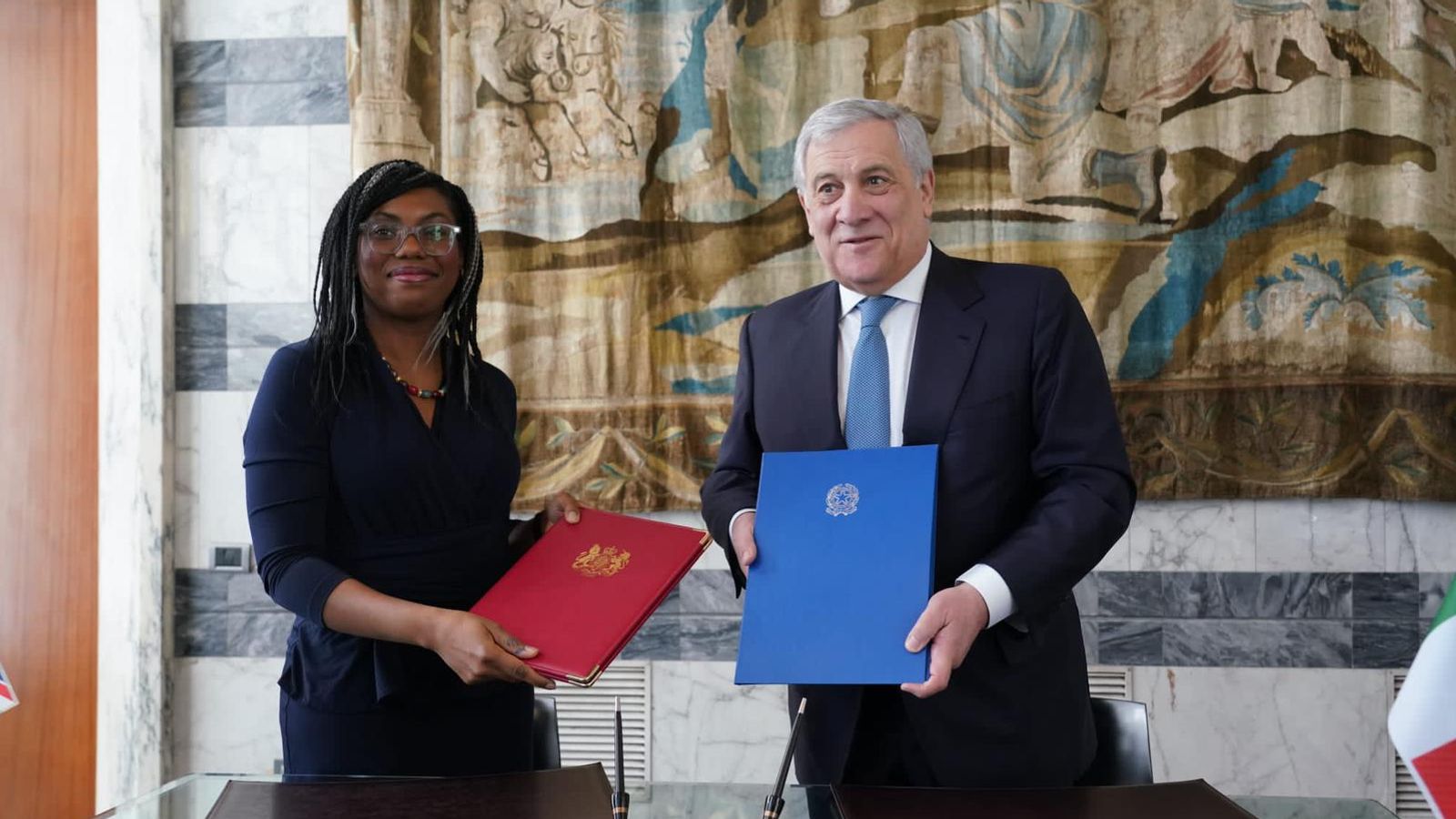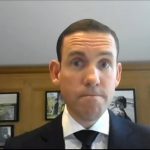Fixating on the short-term damage caused by Brexit is a “fake conversation”, the new Business and Trade Secretary has said, adding that it will “take time” for the shape of Britain’s new economic arrangements to become clear.
In her first broadcast interview since business was added to her job brief, Kemi Badenoch told Sky News that she “can’t get in a time machine” and go back into the EU.
She said: “What I find frustrating is that we spend loads of time trying to re-litigate Brexit rather than focusing on solving new issues.”
She was talking after signing a new “trade partnership” with Italy – the first with a European nation post-Brexit.
The deal makes no change to the UK and Italy’s key trading regulations – from tariffs and quotas to customs rules – but she said it would help improve trade between the nations.
Read more
Businesses ‘banging their heads against a wall’ over EU trade
UK-Australia trade deal completed
Time lost ‘squabbling’ over Brexit
When it was pointed out that the flow of goods and services between Italy and the UK has fallen since Brexit, Mrs Badenoch said: “It is the long-term trend that I need to work towards rather than what happened this year or last year.
“I think that that is actually what I would call a ‘fake conversation’. It’s like asking people who just got married: ‘where’s the baby, where’s the baby?’
“Some things will take time, and some things will happen quickly.
“We lost a lot of time during the pandemic. We lost a lot of time squabbling.
“Now we have a new government that is actually focusing on delivering for the British people.”
Please use Chrome browser for a more accessible video player
Mrs Badenoch, who was trade secretary up until her department was merged with the business brief yesterday, said she understood why many Britons felt Brexit was going badly.
“This is one of the reasons why I’m here,” she said. “We spent so much time having an argument about whether we should have left or stayed in – many years, an entire parliament – but we haven’t actually spent enough time talking about what we can do with having an independent trade policy.
“So I’m not surprised a lot of people are feeling ‘Bregret’ because there are many other economic background factors, that have nothing to do with Brexit, which can make people feel bleak.”
Economic growth no longer ‘Cinderella’ of government
The minister, who has been widely tipped as a future Tory leader, said she liked to see her department as being focused on growth.
The prime minister, she said, “has now created an economic growth department by merging business with trade and I’m here to deliver on that.”
Mrs Badenoch had advocated for the splitting of the Treasury into a fiscal and a growth department during her leadership bid last summer.
She said that was effectively what her department now embodies after Mr Sunak’s reshuffle.
“The Treasury is so focused on all of the other matters that the economic growth bit… just seemed to always be the Cinderella in the department,” she said.
“I thought it was probably better if somebody else was just doing this separately.”
Need for steel?
Asked whether the UK always needed a steel industry, she said: “Nothing is ever a given.”
But she needed to “sit down and look at what exactly has been going on with steel from a business perspective and an industry perspective,” she added.
Asked how the UK would respond to America’s Inflation Reduction Act, a multibillion-dollar scheme to subsidise green industry, Mrs Badenoch said it should be wary of introducing subsidies of its own.
“We are a leader in many areas,” she said. “We can’t always just look at what America is doing and say: ‘well America is doing this, so let’s do the same thing’.
“That is not strategic thinking – what you’re describing is just copying and pasting. That’s not a strategy.”






















